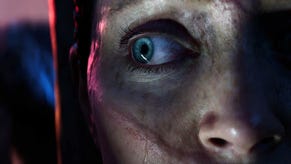After Xbox One U-turn pre-owned is back on the table - but at what cost?
Mixed opinions on the complex issue of second-hand sales.
Microsoft's stunning U-turn on its controversial Xbox One policies has delighted gamers and retailers - but are developers and publishers just as happy?
As part of the sweeping changes to the way Xbox One will work, Microsoft has ditched its in-built system that might have been used by publishers to combat your ability to trade in games.
The decision follows Sony's E3 press conference, which it used to announce that there would be no restrictions on the trading of PlayStation 4 games, and a stinging backlash from the gaming community.
Both Sony and Microsoft - and from what Eurogamer has heard, third parties - are now in agreement: we should be free do whatever we want with the games we've forked out our hard-earned cash for, as we have done for years.
But bubbling under the surface of the stunned reaction to Microsoft's change of heart is a debate as complex as they come, and it seems there are no easy answers. Do game creators and those who fund them deserve a cut of second-hand sales? When you buy a used game, are developers and publishers damaged? In short, is the second-hand market fair on video game makers?

For years now we've heard from publishers that pre-owned is bad for business. According to the established rhetoric, publishers deserve a cut of all sales, including second-hand. That's why EA introduced the now-dead Online Pass.
Online Pass and similar schemes from other publishers, including first party, were an attempt to generate revenue these gargantuan companies felt was rightly theirs. And let's not forget that Microsoft tried - and failed - to introduce a system that would allow publishers to opt-in to second-hand sales. Clearly, senior executives have thought long and hard about how to tackle the second-hand "problem".
Most developers and publishers Eurogamer spoke to admitted gamers should have the right to trade-in their games, but the general consensus is that they also believe developers deserve to get paid with each game sale.
Before last night's announcement, Battlefield executive producer Patrick Bach, who at DICE is creating Battlefield 4 for next-gen, PC and current-gen consoles, tells Eurogamer he doesn't have a problem with second-hand sales - and even goes as far as saying their critics were "whining" about them. But he outlines a scenario in which used game sales actually cost developers money, which, he says, many gamers are not aware of.
"We're still paying for something that we're not getting paid for, which you could argue is a problem, because we're losing money on second-hand sales. Period."
Battlefield executive producer Patrick Bach
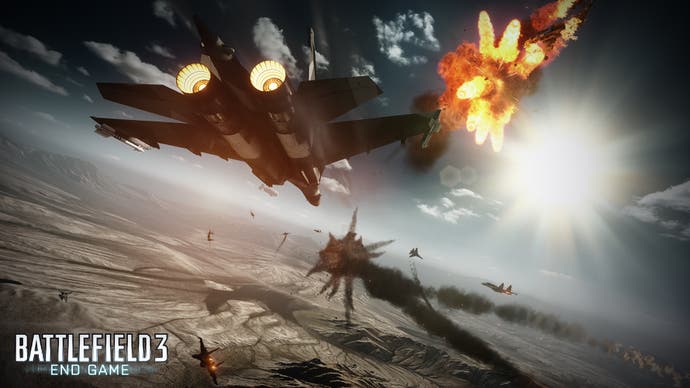
"The problem is I know too much about games and how they work, especially online games," he says. "If we sell one copy of the game - a worst case scenario! - and that gets resold two million times, and everyone wants a new account in our game, we still have a lot of people working on our back end setting up those accounts and making sure they work.
"There's a lot of work involved. We're still paying for something that we're not getting paid for, which you could argue is a problem, because we're losing money on second-hand sales. Period. There is no gain for us at all from a paying people's salaries perspective, when this happens."
Other developers agree with Bach's assertion. Lorne Lanning, the outspoken boss of Oddworld Inhabitants, says Microsoft were "digging their own grave" in their attempt to combat used-game sales, and insists trading games is a "no brainer", but as a game creator he has never approved of the second-hand market.
"I was never a fan of used games because of the way the GameStops of the world were basically pirating our first sales," he tells us. "And that's a fact. They were making their employees sign documents that say, 'you will push a used game if it's on the shelf, and if someone brings up a new game and there's a used one, you're going to push that one.' You sign that to get that job. Great.
"So I've never been a fan of the used game market with an entity that has really no skin in the game for development costs or risks, but is making billions of dollars a year selling those games, and not one of those dollars is coming back to the people who made the games. That is what I've always had a problem with."
"I was never a fan of used games because of the way the GameStops of the world were basically pirating our first sales."
Oddworld Inhabitants boss Lorne Lanning
Evidence of the true impact of the second-hand market on the industry is hard to come by. Last month Wired reported on a new study citing Japanese video game sales that presented uncertain conclusions.
It said the removal of a used market might lower profit-per-game for publishers by 10 per cent, but the lack of a used game market might lead to lower new-game prices because consumers would stop factoring in resale value.
We've heard positive noises coming from the major publishers. EA Games Label boss Patrick Söderlund told Eurogamer at E3: "We don't have a problem with second-hand sales as they are today," adding: "We clearly articulated our stance when we abandoned Online Pass."
Alain Corre is boss of Ubisoft in Europe, and one of the publisher's senior executives. His opinion contrasts that of developers who are critical of used-game sales, and tells Eurogamer that the Far Cry and Assassin's Creed maker thinks the second-hand market is good for the industry - despite it potentially costing his company money.
"We like the idea of gamers coming more often to check in at stores and deciding to buy more games. That's important for us. It gives them a reason to come back and give energy to the market."
Ubisoft Europe boss Alain Corre
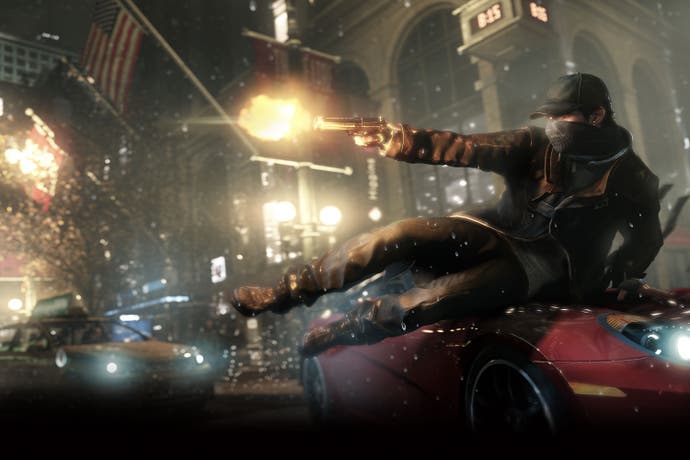
"We like the idea of the gamers coming more often to check in at stores and deciding to buy more games," he says. "That's important for us. It gives them a reason to come back and gives energy to the market.
"It's also good for the retailers we're partnering with and it's important for the ecosystem of this industry. So, yes, we are pro-second-hand.
"The ecosystem with second-hand gives energy to the retailers and gives gamers reasons to come back and try some new games they wouldn't have bought otherwise. These two reasons are enough to justify the existence of second-hand."
Former Epic Games developer and Gears of War co-creator Cliff "CliffyB" Bleszinski has been vocal in his opposition of second-hand sales of triple-A console games. His point, according to various tweets, is that the continued popularity of used games cannot coexist with the established triple-A model.
"You cannot have game and marketing budgets this high while also having used and rental games existing," he tweeted. "The numbers do NOT work people." Bleszinski suggests that second-hand sales hinder triple-A game development - and it's only going to get worse.
Battlefield's Bach believes his hugely popular game series is immune to this, but does see a potential problem for what he describes as mid-tier games, especially those that are single-player only.
"You cannot have game and marketing budgets this high while also having used and rental games existing. The numbers do NOT work people."
Ex-Epic Games designer Cliff Bleszinski
"If you were building a single-player-only game - let's say it takes 10 hours to finish - you're done with it, you sell it, next person plays it, next person, next person, next person," he says. "You only sold one copy. It's like, come on. I made this game! It took a lot of effort and I'm not getting paid for it.
"It's very tricky for the mid-tier games if they're not an online game. And if you're an online game it's the whole back-end issue. Who's paying for the new account? Even though it's not big money, it's still something. It costs something to set up an account and manage that."
The upshot of this, Bach suggests, is a potential reduction in competition, which would be bad for gamers.
"It's hurting the consumer in the end if the developer doesn't get paid," he says. "Then you won't see as many games on the market. There won't be as much competition, which is actually increasing the quality of games.
"We see competition when other games come out, even in other genres, that are upping the game, which keeps us on our toes. In that lies the fact someone is getting paid to do it. Otherwise we will get fewer and fewer game developers. We can see there are a lot of game developers that are suffering from the fact sales are going down and sales of second-hand games are going up, based on the fact people don't have money to buy new games, so they buy used games instead. Then, the mid-tier games will suffer from this."
Last week Nintendo of America boss Reggie Fils-Aime said developers could limit used game sales by simply making their games better, pointing to the relatively low trade-in and resale market for Nintendo products as proof.
"We have been able to step back and say that we are not taking any technological means to impact trade-in and we are confident that if we build great content, then the consumer will not want to trade in our games," Fils-Aime told Polygon.
It's a philosophy echoed by Christofer Sundberg, boss of Swedish developer Avalanche Studios and maker of the Just Cause series and now the open-world Mad Max game for publisher Warner Bros. Avalanche is still seeing high numbers of players for Just Cause 2, which on PC is buoyed by a vibrant modding scene that has resulted in some eye-catching multiplayer shenanigans. Just Cause 2 released three years ago.
"Can we make games that sustain gameplay for a longer period of time so people won't be interested in returning them?"
Avalanche Studios boss Christofer Sundberg
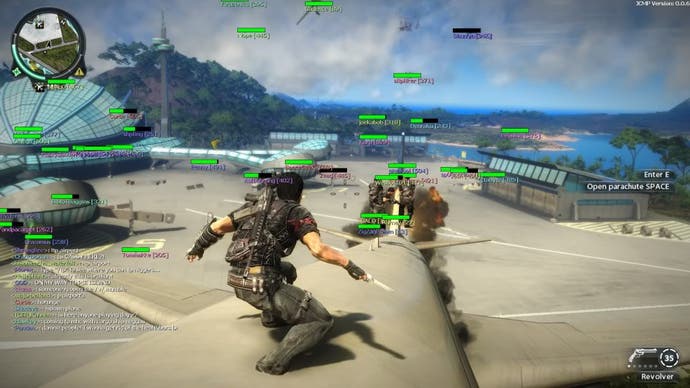
Sundberg tells Eurogamer developers shouldn't complain about second-hand sales. Instead, they should focus on making games gamers don't want to trade-in.
"I go to the game stores around Stockholm quite often in the area where I live," he says. "I always go through the second-hand boxes trying to find Just Cause 2 and reorganise the shelves a little bit! I very rarely find any copies, which is a good sign. It proves we've done something right and players hold on to those games.
"That's really the challenge for all developers. Can we make games that sustain gameplay for a longer period of time so people won't be interested in returning them?
"If we continue to do story-driven, linear games that end in 10 hours, of course I would return it if I bought the game for $60. If I finish it in two days it will be on the shelf collecting dust, or I can get some money back and buy something new."
Bach says DICE has seen a similar "stickiness" with Battlefield 3, which the developer supported with downloadable content over a year after launch.
“It's up to us to give people a good reason to not trade in,” he says. “Make a better game, that's number one. Two, make sure people have a reason to pay for something else: new content or whatever - something they want to pay for.
“But paying for air, or for a licence that is worth nothing? I don't believe in that. It's up to us as a game developer to give value to the players. And if you have a great game, you won't trade it in, period.
“With Battlefield we're in a good position. We're selling quite a few copies. People seem to be happy and they hold on to their copies. It's a multiplayer game. They play the single-player then jump over to multiplayer, and they keep engaged. We try to engage them. We give them more content.”
"If you have a great game, you won't trade it in, period."
Patrick Bach
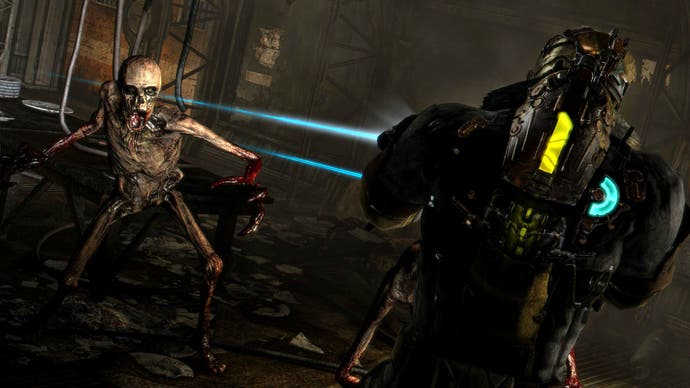
This sounds like good news for gamers, but Bleszinski has a dim view of the future following Microsoft's policy changes.
"More studios WILL close and you'll see more PC and mobile games," he tweeted.
"I have seen the number of unique gamer tags vs actual sales numbers and it ain't pretty.
"I want developers who worked their asses off to see money on every copy of their game that is sold instead of Gamestop. F*** me, right?
"Brace yourselves. More tacked on multiplayer and DLC are coming. You're also about to see available microtransactions skyrocket. HATS FOR EVERYONE.
"You're going to see digital versions of your favourite games with added 'features' and content to lure you to digital over disc based. 'Do whatever it takes to keep that disc in that tray' is the mantra of developers in a disc-based world."
Time will tell.
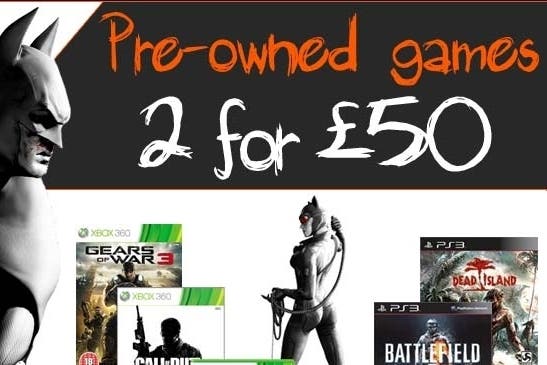






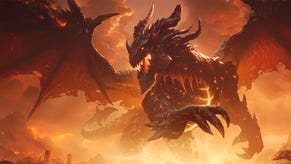
.png?width=291&height=164&fit=crop&quality=80&format=jpg&auto=webp)
